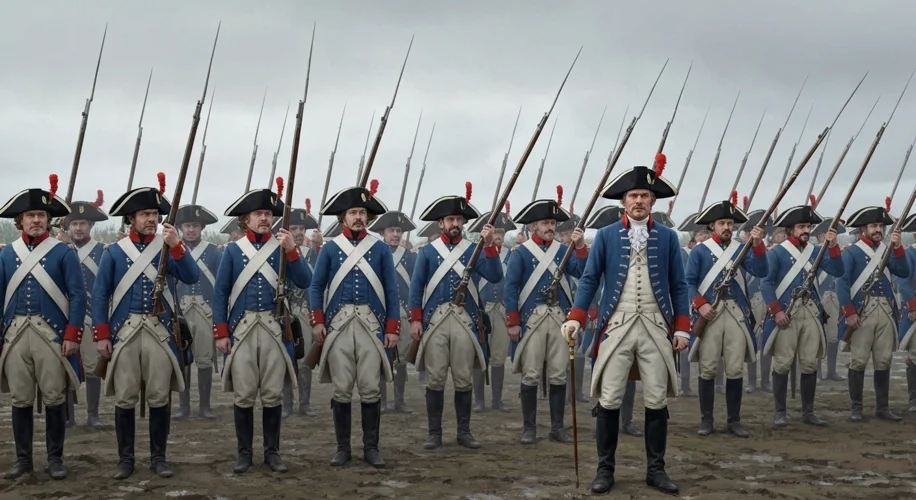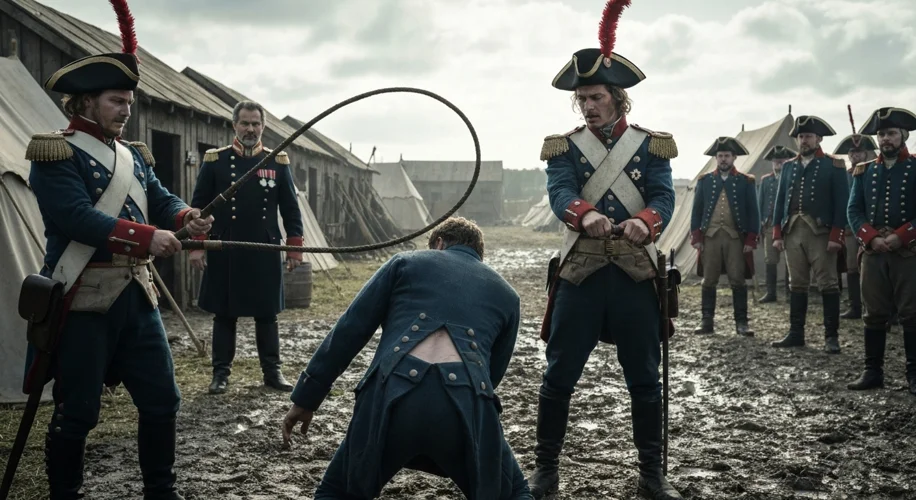The 18th century was a brutal, unforgiving era, and nowhere was this more apparent than in the armies that marched across Europe, instruments of monarchical ambition. Among these, Frederick the Great’s Prussian army stood out. Renowned for its drill-like precision, its relentless discipline, and its often-cruel punishments, it was a force to be reckoned with. Yet, despite the pervasive harshness, a curious fact emerges: the Prussian army under Frederick II boasted a remarkably low desertion rate, hovering around a mere 3%.
How could this be? How did a military machine built on an almost suffocating adherence to obedience, where a single misstep could lead to the lash or even the firing squad, manage to keep its soldiers from fleeing? The answer lies not just in fear, but in a complex interplay of cultural expectations, strategic military organization, and a surprisingly nuanced understanding of human motivation, even from a monarch known for his iron will.
Frederick William I, Frederick the Great’s father, had laid the groundwork. A giant of a man with an equally imposing temper, he had transformed the Prussian military from a ragtag militia into a highly trained, professional force. He believed in order, in discipline, and in the absolute authority of the sovereign. This ethos was inherited and amplified by his son, Frederick II, a military genius and an enlightened despot.

Frederick II’s personal views on obedience were famously severe. He believed that a soldier’s will should be completely subjugated to the will of his commander and, ultimately, the state. “If my soldiers begin to think,” he is quoted as saying, “they will all desert.” His infamous “Bluecher’s Regulations” detailed a harsh code of military justice, with desertion, mutiny, and disobedience punishable by death. Flogging was a common punishment for lesser offenses, administered publicly to serve as a stark warning to others.
But fear alone does not explain the low desertion rate. Other European armies, even those with equally harsh punishments, often suffered from much higher rates of soldiers absconding. The Prussian success was a result of more than just the stick.
One crucial factor was the army’s recruitment and composition. While conscription was a reality, the Prussian army also drew heavily from mercenaries and volunteers. For many, joining the army offered a path to regular pay, food, and shelter, which was a significant improvement over their previous circumstances, particularly for the rural poor. Desertion meant forfeiting this stability, returning to an uncertain and often impoverished existence.
Furthermore, the Prussian army was exceptionally well-drilled. The constant, rigorous training instilled a sense of esprit de corps, a collective identity that bound soldiers together. They trained as a unit, fought as a unit, and, crucially, they were expected to live and die as a unit. This ingrained sense of belonging, of being part of something larger than oneself, created a powerful deterrent against individual flight.
Frederick also understood the importance of maintaining morale, even within a rigid structure. While he demanded absolute obedience, he also cultivated an image of himself as the “first servant of the state,” a leader who shared the burdens of his soldiers. He was often present on the battlefield, leading from the front, and was known to share hardships with his men. This personal connection, however distant, fostered a degree of loyalty and respect that transcended the fear of punishment.
The army’s internal structure also played a role. Non-commissioned officers, often promoted from the ranks, were deeply invested in maintaining discipline and unit cohesion. They were the enforcers, but also the immediate point of contact for the common soldier, understanding their grievances and ensuring adherence to regulations. The tight-knit nature of infantry companies and battalions meant that any attempt to desert would likely be noticed and reported by comrades, who themselves faced repercussions if desertion occurred within their ranks.
Moreover, Prussia was a relatively compact state. Unlike vast empires where a deserter might find anonymity in a foreign land, escaping the reach of Prussian authority was considerably more difficult. The kingdom’s relatively well-defined borders and its efficient administrative network made it harder for runaways to disappear without a trace.
In essence, Frederick the Great’s Prussian army was a finely tuned instrument, forged not solely by the blacksmith’s hammer of punishment, but also by the craftsman’s meticulous shaping of recruitment, training, esprit de corps, and leadership. The low desertion rate wasn’t just a testament to the king’s severity; it was a product of a system that, while harsh, also provided a sense of purpose, belonging, and stability that many soldiers found hard to abandon. It was a grim paradox: a force built on the suppression of individual will that paradoxically fostered a collective will to serve, a testament to the complex, often brutal, machinery of 18th-century warfare.

